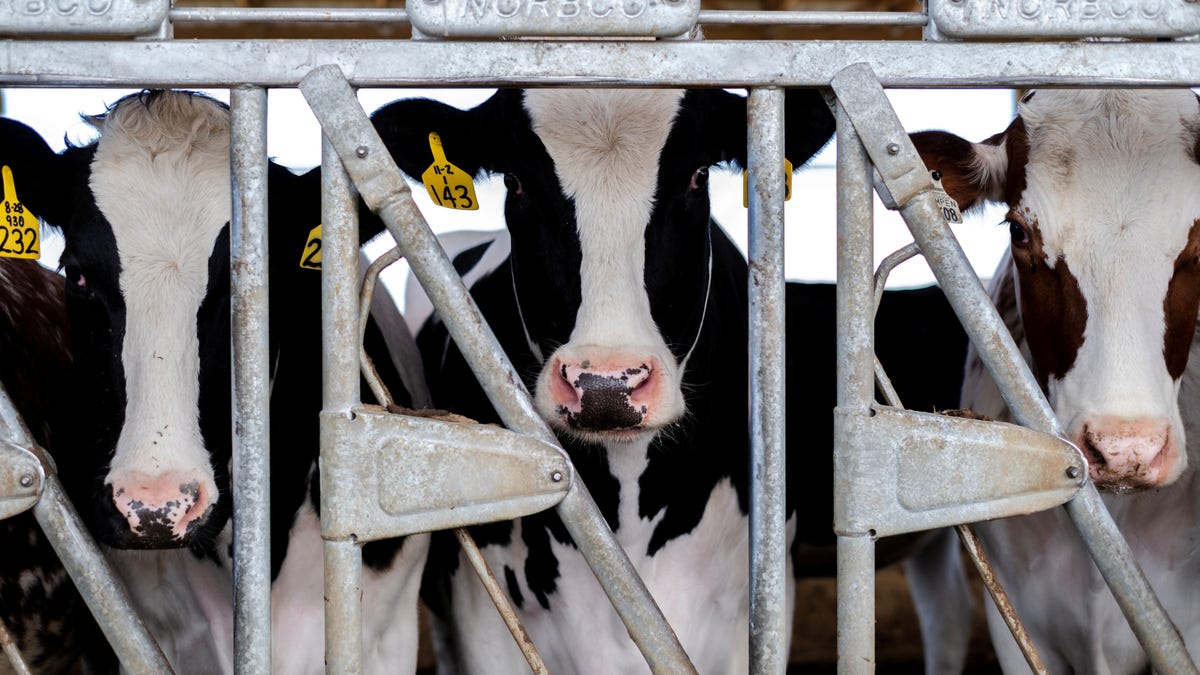Genetic Fragments of H5N1 Bird Flu Virus Detected in 20% of Retail Milk Samples
The U.S. Food and Drug Administration (FDA) recently announced the discovery of genetic fragments of the H5N1 bird flu virus in one out of every five retail samples of milk tested. This revelation followed closely on the heels of an earlier announcement by the agency that inactive traces of the virus had been found in the commercial milk supply.
As a response to these findings, the FDA initiated testing on a nationally representative sample of commercial milk, triggered by the detection of the virus in multiple dairy cattle herds across various states. Consequently, the U.S. Department of Agriculture (USDA) issued a federal order requiring testing for the bird flu in cows that are transferred across state lines.
Collaborative Efforts of Government Agencies
The FDA, USDA, and the U.S. Centers for Disease Control and Prevention (CDC) have joined forces to investigate and monitor the escalating outbreak. This collaborative effort aims to provide comprehensive insights into the bird flu outbreak affecting U.S. dairy cows.
Understanding H5N1 Virus
H5N1 is categorized as a type of bird influenza virus that was initially identified in 1996 in domestic waterfowl in Southern China. Known for its high contagion rate among birds, the virus sparked a new outbreak among wild birds in Europe in 2020, subsequently spreading to domestic poultry and sporadically to mammal species like foxes, sea lions, and cows.
Within the United States, over 90 million commercial poultry and backyard birds in 48 states have been infected with the virus, according to the CDC. As of the latest update, 33 dairy cattle herds spanning eight states have been impacted, including Idaho, Michigan, Texas, New Mexico, South Dakota, Kansas, North Carolina, and Ohio.
Safety of Milk and Beef Consumption
The FDA affirmed that despite the presence of the virus, commercial, pasteurized milk remains safe for consumption. Pasteurization, a process involving heating milk to high temperatures for a set duration, effectively eliminates harmful bacteria and viruses, ensuring minimal health risks to consumers. Additionally, milk derived from infected cows is diverted and disposed of securely.
Regarding beef safety, the USDA reassured consumers that the meat supply remains unaffected by the outbreak. The agency emphasized the importance of properly handling raw meat and cooking it to an internal temperature that eradicates any potential bacteria or viruses.
Human Impact and Containment Measures
Since 2022, only two reported cases of individuals testing positive for H5N1 in the United States have surfaced, with both cases non-fatal. The most recent incident occurred in late March in Texas, where an individual working on a commercial dairy farm, exposed to presumptively infected cows, displayed symptoms of eye redness. Another case emerged in Colorado, involving a person directly engaged in culling infected poultry.
Although human-to-human transmission of H5N1 remains rare, the World Health Organization (WHO) underscores the virus’s potential to mutate and enhance its transmissibility as it spreads further.
It is essential for consumers to stay informed and cautious regarding food products derived from potentially affected sources to mitigate any risks associated with the bird flu outbreak.
Image/Photo credit: source url





